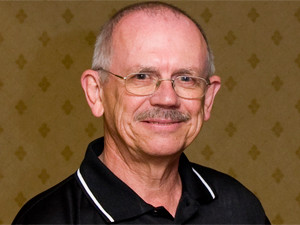
The country's fifth democratic election has come and gone and SA's ICT industry has been left stumped by President Jacob Zuma's decision to split the former Department of Communications (DOC) in two.
As of 25 May, the DOC as SA knew it is no longer. It has been divided into a Department of Telecommunications and Postal Services (DTPS) and a new "reconfigured" DOC, including the Independent Communications Authority of SA (ICASA), the SABC, Government Communication and Information Systems, Brand SA and the Media Development and Diversity Agency.
Zuma says government decided to reconfigure departments "to improve implementation and ensure impact".
The president has appointed former spy boss Siyabonga Cwele as head of SA's telecoms and postal services sector, while the new DOC is being overseen by former Makhado municipal manager Faith Muthambi.
While it appears Cwele's department will take over as the ministry with the most clout within the ICT sector, government is yet to clarify each department's new role and the new set-up has bred confusion and resentment among industry players.
Early-day reactions included words and phrases like "worrying", "not good news", "strategic mistake", "confusing", "mystery", "incredibly disheartening" and "nonsensical".
Some of the key concerns raised include the role and muscle of ICASA; further fragmentation of existing uncoordinated policies; the "dumping" of a competent and fiery communications minister; time needed for new ministers and deputies to get up to speed with new portfolios; the potential of bureaucratic and policy tensions to delay and exacerbate the country's crisis around rapid delivery of telecoms services; and the implications on future investment.
The telecommunications industry was tagged as a R180 billion industry for SA as far back as 2012, and it is a well-known fact that the country has been progressing exponentially since - attracting interest from across the globe.
Who is Cwele?
ITWeb took a closer look at who Zuma has entrusted with heading up the multibillion-rand industry.
No stranger to controversy, former state security minister Cwele's appointment as the new telecoms boss has dismayed the industry, with concerns being raised over his previous tight focus on state security, and what this will mean for freedom within the sector.
His tenure at the state security ministry was marred by several contentious missteps. In 2011, Cwele's wife, Cheryl, was convicted of operating an international drug syndicate - an activity that Cwele claimed to have had no knowledge of. He was also the driver of the controversial Protection of State Information Bill, known as the Secrecy Bill.
Last month, Zuma said Cwele's ministry would "ensure the country derives more value out of the booming information communications and technology industry and the postal services sector".
Cwele moves into the post from state security head, a position he has held since September 2008, despite its renaming from intelligence in 2009.
Cwele is also a former chairman of the Joint Standing Committee on Intelligence, and chaired the Parliamentary Social Services Committee. He has also spent time on the Communications Committee and the Budget Committee.
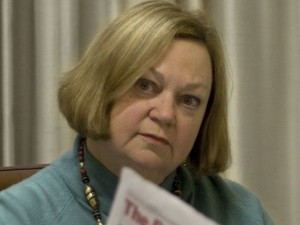
A qualified medical practitioner, Cwele completed an MBchB at the University of Natal and a postgraduate diploma in child health at the College of Medicine in SA. He practised in the health sector between 1984 and 1994, when he was deployed to Parliament. As a student, Cwele participated in anti-apartheid activities.
ICT veteran Adrian Schofield is sceptical about Cwele's appointment, saying he "has not succeeded in his previous portfolio and is best known for his ex-wife's role as a drug dealer".
Marian Shinn, the Democratic Alliance's shadow minister of communications, adds Cwele has no knowledge about the potential of ICT to economic growth and its challenges. "His knowledge comes from oversight of electronic surveillance and cyber security through the Ministry of State Security. I fear for our Internet freedom."
Dominic Cull, owner of Ellipsis Regulatory Solutions, has concerns Cwele's focus will be on control rather than enablement. People from state security think a certain way, he notes.
Who is Muthambi?
Muthambi too is no stranger to controversy, having previously been accused of nepotism and corruption while a municipal manager.
Muthambi is a relative newcomer to the sector. At the time of the Cabinet reshuffle announcement, Zuma said Muthambi's ministry would be "responsible for overarching communication policy and strategy, information dissemination and publicity, as well as the branding of the country abroad".
Muthambi hails from Limpopo and studied at the University of Venda, where she did a BProc degree. She was previously municipal manager of Makhado and manager of labour relations in the Limpopo premier's office.
She has been a Member of Parliament since April 2009, and has served on the Parliamentary Portfolio Committee on Communications
Democratic Alliance shadow minister of communications Marian Shinn says Muthambi has sound ICT knowledge and will be a good minister, while ICT veteran Adrian Schofield notes Muthambi was discredited as a municipal manager and questions how she can be expected to command respect as a senior leader of this country's government.
Goodbye, Carrim
Zuma's post-election Cabinet announcement dashed industry's hope that well-liked and fiery former communications minister Yunus Carrim would continue in the portfolio. Carrim always expressed candour around the likelihood of his term as head of the DOC being limited to the 10 months between his appointment and the 2014 general elections.
Although Carrim has gracefully accepted his fate, other ICT veterans and leaders have received the news with less cheer.
Carrim tells ITWeb it has been an honour to serve as a minister. "Of course, when I first became an activist in high school in 1971, I would never have thought that I would be an MP in the first ever democratic Parliament of our country, let alone a Cabinet minister.
"My term came to an end with the elections. I have no sense of entitlement, and am certainly fine with the decision not to appoint me to the new Cabinet."
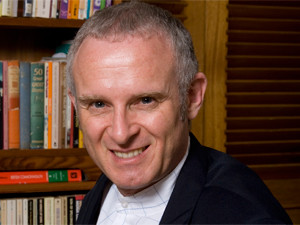
Carrim will continue to be an active MP and says he will serve as best as he can. "I wish the new minister, Siyabonga Cwele, and deputy minister, Hlengiwe Mkhize, everything of the best."
The academic and former journalist is widely credited with turning around the old DOC, achieving several goals that had previously been left to languish.
In the past 10 months, the former DOC made several inroads into achieving goals that had been on the backburner for some time. Of the 19 goals Carrim set the department on his appointment less than a year ago, 14 have been either fully or partially met.
This includes rapidly getting key policies published, filling vital vacancies, connecting schools, and moving on spectrum. Cull says Carrim gave a sense of hope that the country would move forward in placing communications at the centre of the agenda.
Cull says it is incredibly disheartening to have yet another telecoms minister, the ninth since SA became a democracy.
Africa Analysis analyst Dobek Pater says even though Carrim was largely anticipated to be a placeholder until the elections, he managed to bag significant achievements in terms of moving the broadband policy along during his short tenure.
"One would have wished that he remained in his seat to ensure continuity and have a minister who already demonstrated certain competency in the sector." Pater says the restructuring of the former DOC is "peculiar, to say the least".
World Wide Worx MD Arthur Goldstuck says Carrim will be sorely missed. "The latest move brings to a crashing, grinding, mind-numbing halt the progress made under Yunus Carrim.
Goldstuck says the "dumping" of Carrim and the appointment of "less than stellar" performers makes no sense.
Shinn says she is "outraged" that Carrim was axed from the top ICT spot. "He put in exceptional energy and intellectual agility into understanding the complexities and fractiousness of the sector - as well as the potential for corruption between government officials and the cronies - and acted with vigour to resolve the issues."
Schofield says he is saddened by what he calls the sidelining of Carrim and doubts the ability of the new ministers to command respect as senior leaders of the country's government, given their shady pasts.
Overriding unease
As for the overriding sentiment around SA's now dissected and reshuffled ICT sector, industry professionals at large have expressed both bafflement and discouragement.
Independent telecoms researcher Samantha Perry says, while it is too early to say what the formation of the new ministry will mean for the local sector, the fact that ICASA has been taken out of the old communications and put into the new communications - which is expected to handle branding and messaging - is worrying. "ICASA is not meant to handle how SA is perceived; it's an independent industry regulator and its new location is concerning."
Africa analyst Koffi Kouakou says the establishment of a new ministry sends the wrong signal for the idea of a consolidated and more coordinated strategy for the competitiveness of the country's telecoms industry.
Kouakou says there several reasons why the new ministry is not good news and is a strategic mistake for the future of the telecommunications industry in SA.
"Firstly, the new ministry will fragment further the existing uncoordinated policies and it will increase the implementation silo gaps with the old ministry of communications. [It will also] take time for the new ministry to get up to speed about its own operations and the delivery on its mandate."
He says, while the establishment of the new telecommunications and postal service might look good in the new Cabinet portfolio, it is a bad unbundling idea. "The future of telecoms lies in integration rather than unbundling."
Kouakou concludes that there is no need for a new ministry of telecoms and postal services. "Who needs traditional postal services today? They are dinosaurs already."
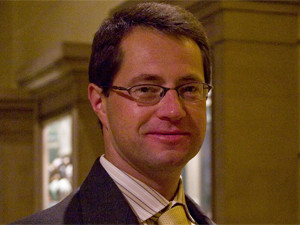
Cull says he finds the development "incredibly weird" and is disheartened that, just as the industry appeared to be making progress, a spanner like this gets thrown in the works. "This appears to show a desire on the part of government to have greater control over the SABC and content in general, while its lack of understanding of the technical issues surrounding the industry is evident."
Ovum analyst Richard Hurst says the split does not make sense right now - and comes at a time when SA is facing some critical tasks in terms of sector development. "The split could increase the delays that we have already seen in the allocation of spectrum and the roll-out of 4G and an increased penetration of wireless broadband in the country."
Not mincing her words, Shinn labels the move "absolutely daft". She says the communications ministry should have ICASA, policy and strategy, and communications infrastructure components.
"It makes no sense to place communication policy, strategy and regulation in the same department as government's media, marketing and publicity operations. This indicates to me a clear confusion in the ANC as to the different needs of the activities that fall into the amorphous world of 'communications'."
On a more optimistic note, Mark Walker, director of insights and vertical industries for IDC Middle East, Africa and Turkey, says Zuma's move makes sense from a telecoms versus postal split, as business models are different.
"[This] frees up the telco/tech sector from the traditional links to postal so they can hopefully plan and move better. The DOC now seems focused more on the media meaning of communications than with the technology aspects."
Walker says the industry can only hope the move will advance the sector and see Carrim's legacy continuing.
Schofield says he found the move puzzling. "The 'new' Department of Telecommunications and Postal Services (DTPS) is a reversion to the pre-digital era and seems to deliberately separate broadcasting (content) from service provision. What is (and will be) confusing is that the DTPS is mostly what the old DOC was and the new DOC is mostly concerned with controlling how and what South Africans see and hear (the 'Propaganda Ministry')."
He says SA's ICT sector will now have a much tougher job getting the message to government about the critical role of ICTs in the country's future. "The new structures appear to prevent any holistic approach to the use of converged technologies in building a better society and a stronger economy."
Blow to rights
The Right2Know - an organisation formed in 2010 in a bid to halt the Secrecy Bill - says Zuma's new Cabinet is a blow to the right to communicate.
Spokesperson Mark Weinberg believes the "new-look" DOC signals "an intention to ensure various institutions will be used to amplify government propaganda, rather than to create a democratic communication system for all South Africans".
Of particular concern, says Weinberg, is Zuma's announcement around the bodies that will make up the new ministry. "These are all bodies that have degrees of statuary independence from the executive. They all have critical mandates to defend and advance our constitutional rights to freedom of expression and access to information.
"We must now face the risk that the Ministry of Communications will be used to further weaken the regulatory capacity of ICASA and further undermine the already questionable independence of the SABC, all in service of creating a communication environment compliant to the needs of government messaging, rather than one which best serves the information needs of the people."
He notes this ministry will also be responsible for drafting government policies on broadcasting and the transformation of the print media. "These are both long overdue interventions that should be aimed at diversifying the media landscape and ensuring the sustainability of public and community media.
"These sensitive regulatory processes must be undertaken to advance freedom of expression and press freedom in particular. They are now in the hands of a minister with a mandate to ensure government's 'good story' gets told."
As far as the new DTPS goes, the Right2Know's concerns are twofold: the rationale for a new ministry and the appropriateness of Cwele's appointment.
"The increasing convergence of broadcasting and ICT has led to a global trend of convergence where broadcasting and telecommunications are increasingly integrated. Zuma's three previous ministers responsible for broadcasting and ICTs have all driven an integrated approach that has led to the ICT Green Paper currently in discussion.
"The new ministry appears to be a setback that will undermine the ability of South Africa to harness the democratising and developmental potentials of communication technologies.
Further, the president's stated intentions for the new ministry places economic growth ahead of the ICT needs of our democracy and our people."
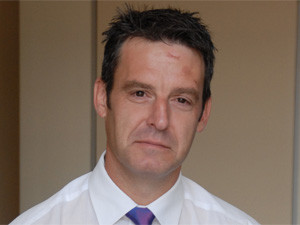
Weinberg says globally, the revelations by NSA whistle-blower Edward Snowden have shown why state surveillance and the right to privacy need to be at the centre of any government communications policy. "In SA, there is urgent need for both government and the private telecoms sector to scrap policies and practices that allow ordinary South Africans' communications to be intercepted and their privacy to be violated."
He says, under Cwele's stewardship of the Ministry of State Security, there have been growing concerns about the use and misuse of interception of communications. Between 2008 and 2011 - the most recent statistics available through Parliament - there was a 170% increase in interception through the RICA system.
The organisation has called on both Muthambi and Cwele to commit to upholding and advancing citizens' right to communicate - "to receive and impart information and opinions - that is central to our right to know".
In a nutshell, industry observers say at this stage, SA's ICT industry is left with far more questions than answers - a scenario they hope will be cleared up for the sake of the country's economic and social upliftment.
The best scenario for SA now would be if Cwele hit the ground running - in Carrim's footsteps.
Last week, spokesperson for the Department of Telecommunications and Postal Services, Siya Qoza, said Cwele would address the public "within days".
Share